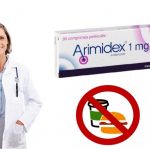Foods to Avoid While Taking Estradiol

For most people, taking a new medication may mean switching up your lifestyle a bit and that includes the foods you eat. A food-drug interaction means that a specific nutrient or compound within the food changes the way your body metabolizes the medication, and this can either enhance or reduce the dose your body gets, according to Johns Hopkins Medicine. The potential results: an increased risk of side effects, many of which can be dangerous, or the drug not working as it was intended.
Before introducing a medication, ask your pharmacist about any food interactions, including with alcohol, and any adjustments you may have to make to your diet. In this article, we will discuss estradiol and the foods to avoid while taking it.
What is Estradiol?
Estradiol is a female hormone (estrogen). It is used by women to help reduce vaginal symptoms of menopause (such as vaginal dryness, burning, and itching). These symptoms are caused by the body making less estrogen. When treating only vaginal symptoms of menopause, products applied directly inside the vagina (such as this medication) should be used first. Estrogens that are taken by mouth, absorbed through the skin, or injected may have greater risks of side effects due to more estrogen being absorbed.
Estradiol is available under the following different brand names: Estrace, Vivelle-Dot, Delestrogen, DepoEstradiol, Divigel, Elestrin, Alora, Estrace Cream, Estraderm Transdermal, estradiol topical, Estradot, Estrasorb, Estrogel, Evamist, Femtrace, Menostar, Minivelle, Vivelle, and Climara.
How should I take estradiol?
Take estradiol exactly as it was prescribed for you. Follow all directions on your prescription label. Do not take this medicine in larger amounts or for longer than recommended.
Estradiol may increase your risk of developing uterine cancer. To help lower this risk, your doctor may also want you to take a progestin. Report any unusual vaginal bleeding to your doctor immediately.
Your doctor should check your progress on a regular basis (every 3 to 6 months) to determine whether you should continue this treatment. Self-examine your breasts for lumps on a monthly basis and have a mammogram every year while using estradiol.
If you need major surgery or will be on long-term bed rest, you may need to stop using this medicine for a short time. Any doctor or surgeon who treats you should know that you are using this medicine.
Store at room temperature away from moisture, heat, and light. Keep the bottle tightly closed when not in use.
If you are taking injectable estrogen, dispose of any needles and syringes in an appropriate sharps container per your state laws. Do not throw away used needles into the garbage.
If you are using estradiol spray, avoid fire, flame, or smoking until the spray has dried. Do not apply lotion or sunscreen over the area for at least one hour.
Foods to avoid while taking estradiol
Avoid or limit the following foods and beverages while taking estradiol:
Alcohol: Avoid the consumption of any type of alcoholic drink or food made with alcohol while taking estradiol. Doing so according to studies increases estradiol levels by 22 and 300% in the transdermal patch and oral studies, respectively. Alcohol consumption while taking estradiol may thus increase the risk of breast cancer.
Grapefruit and grapefruit juice: Avoid grapefruit and grapefruit juice while taking estradiol. Studies have shown that grapefruit juice significantly increases estradiol levels in the blood. One of the flavonoids found in grapefruit juice is quercetin. Grapefruit and grapefruit juice may change the amount of this medicine that is absorbed in the body.
Smoking: Doctors strongly advise patients not to smoke while taking estradiol. Tobacco smoking can increase the risk of a blood clot, stroke, heart attack, or other serious problems while taking this medication. Smoking cessation is strongly advised for smokers who are considering menopausal hormone therapy because smoking increases the risk of cardiovascular disease in those who are taking estrogen.
Some products that may interact with this drug include aromatase inhibitors (such as anastrozole, exemestane, letrozole), fulvestrant, ospemifene, raloxifene, tamoxifen, toremifene, tranexamic acid.





